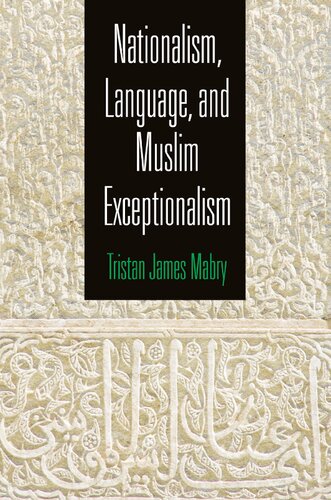

Most ebook files are in PDF format, so you can easily read them using various software such as Foxit Reader or directly on the Google Chrome browser.
Some ebook files are released by publishers in other formats such as .awz, .mobi, .epub, .fb2, etc. You may need to install specific software to read these formats on mobile/PC, such as Calibre.
Please read the tutorial at this link. https://ebooknice.com/page/post?id=faq
We offer FREE conversion to the popular formats you request; however, this may take some time. Therefore, right after payment, please email us, and we will try to provide the service as quickly as possible.
For some exceptional file formats or broken links (if any), please refrain from opening any disputes. Instead, email us first, and we will try to assist within a maximum of 6 hours.
EbookNice Team

Status:
Available0.0
0 reviewsIn an era of ethnopolitical conflict and constitutional change worldwide, nationalist and Islamist movements are two of the most powerful forces in global politics. However, the respective roles played by nationalism and Islamism in Muslim separatist movements have until recently been poorly understood. The conventional view foregrounds Muslim exceptionalism, which suggests that allegiance to the nation of Islam trumps ethnic or national identity. But, as Tristan James Mabry shows, language can be a far more reliable indicator of a Muslim community's commitment to nationalist or Islamist struggles.
Drawing on fieldwork in Iraq, Pakistan, India, Indonesia, and the Philippines, Nationalism, Language, and Muslim Exceptionalism examines and compares the ethnopolitical identity of six Muslim separatist movements. There are variations in secularism and ethnonationalism among the cases, but the key factor is the presence or absence of a vernacular print culture—a social cement that binds a literate population together as a national group. Mabry shows that a strong print culture correlates with a strong ethnonational identity, and a strong ethnonational identity correlates with a conspicuous absence of Islamism. Thus, Islamism functions less as an incitement, more as an opportunistic pull with greater influence when citizens do not have a strong ethnonational bond. An innovative perspective firmly grounded in empirical research, Nationalism, Language, and Muslim Exceptionalism has important implications for scholars and policymakers alike.